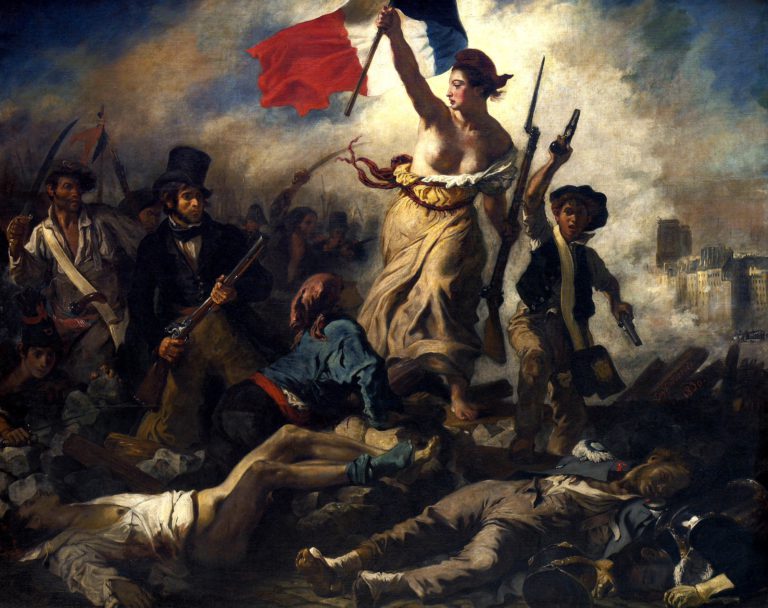The problem is not the problem. The problem is your attitude about the problem.
– Captain Jack Sparrow For non-History background aspirants, the main problem is covering History for General Studies Paper I. Post Independent India and World History are mains exclusive points. As the exam date is postponed, it is time to utilise this time for mains preparation. In the following article, we will cover how to approach World History pragmatically. The first thing is to understand World History’s importance from the exam point of view.
|
Year |
2013 |
2014 |
2015 |
2016 |
2017 |
2018 |
2019 |
|
Marks |
40 |
30 |
25 |
12.5 |
10 |
00 |
15 |
So, every year there is at least one question from this topic (except 2018). But investing much time and energy to cover 1-2 questions is not advisable. So, here we will explain to you, how to cover World History in less time and score good marks. SYLLABUS-
The UPSC syllabus for World History in General Studies Mains include-
- Industrial revolution
- Colonization
- Decolonisation
- World wars
- Redraw of national boundaries
- Political philosophies such as capitalism, socialism, communism, etc. – their forms and consequences on society.
PAST YEAR QUESTIONS2013
- “Latecomer” Industrial revolution in Japan involved certain factors that were markedly different from what west had the experience.
- Africa was chopped into states artificially created by the accident of European competition. Analyse.
- American Revolution was an economic revolt against mercantilism. Substantiate.
- What policy instruments were deployed to contain the great economic depression?
2014
- What were the major political, economic and social developments in the world which motivated the anti-colonial struggle in India?
- What were the events that led to the Suez Crisis in 1956? How did it deal a final blow to Britain’s self-image as a world power?
- The New Economic Policy – 1921 of Lenin had influenced the policies adopted by India soon after independence. Evaluate.
2015
- Why did the industrial revolution first occur in England? Discuss the quality of life of the people there during the industrialization. How does it compare with that in India at present?
- To what extent can Germany be held responsible for causing the two World Wars? Discuss critically.
2016
- The anti-colonial struggles in West Africa were led by the new elite of Western-educated Africans. Examine.
2017
- What problems were germane to the decolonization process of the Malay Peninsula.
2019
- Explain how the foundations of the modern world were laid by the American and French revolution.
IMPORTANT TOPIC LISTFrom syllabus and above past year question papers, we have listed important world history topics.
-
American Revolution and the Constitution
-
Enlightened Absolutism
-
French revolution and aftermath, 1789- 1815
-
American Civil War and the abolition of slavery
-
English Industrial Revolution: Causes and Impact on Society
-
Industrialization in the USA, Germany, Russia, Japan
-
Eastern Question
-
Germany and Italian unification
-
Colonialism and imperialism- Africa and Asia
-
Political philosophies- Capitalism, Communism, Socialism
-
The Russian Revolution and The Chinese Revolution
-
Fascism- Hitler (Germany) and Mussolini (Italy)
-
Great Economic Depression
-
World War I & II: Causes and consequence
-
Post-war establishments- UNO, NATO
-
Cold War
-
Arab nationalism
-
Decolonisation- Asia, Africa (special reference to Apartheid), South America (Role of Simon Bolivar)
-
Neocolonialism
-
The disintegration of USSR, End of Cold War and the US ascendency
The overall understanding of these topics is necessary. Don’t focus on minor details.
Reference material and approach-In our opinion, A History Of Modern World by Ranjan Chakrabarti is a wonderful book from General Studies point of view. Unlike NCERT’s, it is not too short and not too bulky. Although, Jain & Mathur and Norman Lowe are very good books. But, for Mains answers, we need a generalist approach in most answers. Ranjan Chakrabarti’s book covers most topics holistically for General Studies. Again, you need not cover this book from cover to cover.
Selective reading, based on the important topic list and past year questions, is required. First, try to understand events (eg. American civil war) and personalities (eg. Abraham Lincoln). In the second reading, find answers for past year questions from the book. Lastly, make short notes in Question-answer format for revision. Revision is the key. Uncovered topics can be covered from the internet.
Tip– Try to learn the art of connecting distant events. Eg. The colonial history of Africa and their present-day backwardness. Civil rights movement in America under Martin Luther King Jr. and Death of George Floyd. This can make your answers impressive.
Also read-

